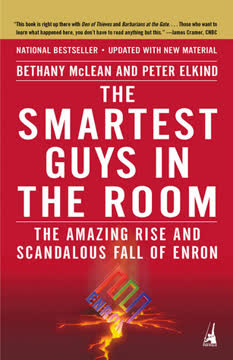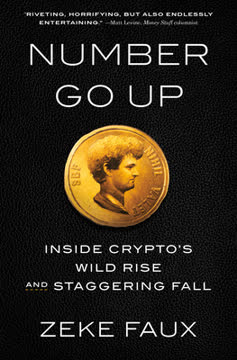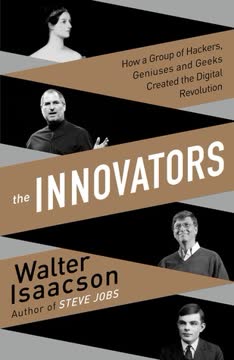Key Takeaways
1. Jim Clark: Silicon Valley's Visionary Disruptor
"Clark was the guy who always won the game of chicken because his opponents suspected he might actually enjoy a head-on collision."
Unconventional genius. Jim Clark emerged as a pivotal figure in Silicon Valley, known for his ability to envision and create groundbreaking technologies. His journey from a troubled youth in Plainview, Texas, to becoming a billionaire tech entrepreneur exemplifies the American dream and the spirit of Silicon Valley.
Serial innovator. Clark's career was marked by a series of successful ventures:
- Silicon Graphics: Revolutionized computer graphics
- Netscape: Pioneered the commercial Internet browser
- Healtheon: Aimed to transform the healthcare industry
Disruptive mindset. Clark's approach to business and technology was characterized by:
- Constant pursuit of the "new new thing"
- Willingness to challenge established norms and industries
- Ability to attract top talent and inspire loyalty among engineers
2. The Rise of Netscape and the Internet Revolution
"Netscape obviously didn't create the Internet. But if Netscape had not forced the issue on the Internet, it would have just burbled in the background."
Internet catalyst. Netscape's creation and subsequent IPO in 1995 marked a turning point in the tech industry, igniting the Internet boom and reshaping the economic landscape.
Rapid growth and impact:
- Netscape's browser made the Internet accessible to the masses
- The company's IPO set new standards for tech valuations
- Attracted intense competition, particularly from Microsoft
Cultural shift. Netscape's success:
- Popularized the idea of getting rich quick through tech startups
- Challenged traditional business models and corporate structures
- Accelerated the pace of innovation in Silicon Valley
3. Healtheon: Reimagining the Healthcare Industry
"You do the math."
Ambitious vision. Healtheon aimed to revolutionize the $1.5 trillion U.S. healthcare industry by streamlining processes and eliminating inefficiencies through Internet-based solutions.
Evolving strategy:
- Initially focused on connecting various healthcare stakeholders
- Shifted to emphasizing transactions and becoming a healthcare portal
- Utilized the "Golden Triangle" concept to simplify its pitch to investors
Market response. Healtheon's journey to going public reflected the volatile nature of tech valuations:
- Failed IPO attempt in 1998 during market downturn
- Successful IPO in 1999, reaching a $3 billion valuation on its first day of trading
4. The Art of Groping for the "New New Thing"
"He was doomed to be forever searching for the new new thing."
Constant innovation. Clark's approach to business was characterized by an unrelenting pursuit of the next big technological breakthrough or market opportunity.
Methodology:
- Identifying emerging trends and technologies
- Assembling teams of top engineers and talent
- Rapidly iterating and pivoting based on market feedback
Challenges and rewards:
- High-risk, high-reward strategy
- Often led to groundbreaking innovations
- Created immense wealth but also periods of uncertainty and stress
5. Clark's Yacht Hyperion: A Technological Marvel and Metaphor
"There is nothing more satisfying to me than to create a complete self-contained world when a computer is controlling it."
Technological ambition. Hyperion, Clark's computerized yacht, represented his vision of technology's potential to control and enhance complex systems.
Features and challenges:
- 25 computers controlling various systems
- Aimed to be sailed remotely via the Internet
- Encountered numerous technical difficulties during its maiden voyage
Symbolic significance:
- Represented the intersection of Clark's technological vision and personal desires
- Highlighted the challenges of implementing cutting-edge technology in real-world applications
- Served as a metaphor for Clark's approach to business and innovation
6. The Changing Face of Silicon Valley Capitalism
"Silicon Valley has more in common with Hollywood than it does with Detroit."
New paradigm. The Internet boom ushered in a new era of capitalism in Silicon Valley, characterized by:
- Rapid wealth creation through IPOs and stock options
- Emphasis on potential and growth over traditional metrics like profit
- Blurring of lines between engineers, entrepreneurs, and investors
Shifting power dynamics:
- Engineers and entrepreneurs gained leverage over traditional financiers
- Venture capitalists adapted to new expectations and valuations
- Wall Street's role evolved from gatekeeper to facilitator
Cultural impact:
- Created a gold rush mentality in Silicon Valley
- Attracted talent and capital from around the world
- Reshaped societal perceptions of wealth and success
7. The Internet Boom and the Stock Market Frenzy
"The age demanded an image of its accelerated grimace"
Irrational exuberance. The late 1990s saw an unprecedented surge in tech stock valuations, driven by excitement over the Internet's potential.
Key characteristics:
- Companies going public with little to no revenue or profit
- Extreme volatility in stock prices
- Investors prioritizing growth and market share over traditional financial metrics
Consequences:
- Created enormous wealth for early investors and employees
- Led to a bubble that eventually burst in 2000
- Reshaped investment strategies and risk perceptions
8. The Collision of Technology and Traditional Industries
"The Internet was a Trojan horse in which technogeeks entered all sorts of markets previously inhospitable to technogeeks."
Disruption wave. The Internet and related technologies began to transform various traditional industries, including:
- Healthcare (Healtheon)
- Retail (Amazon, eBay)
- Media and entertainment
Challenges and opportunities:
- Established companies struggled to adapt to rapid technological change
- New entrants leveraged technology to create innovative business models
- Industries faced pressure to digitize and become more efficient
Long-term impact:
- Accelerated the pace of change across the economy
- Created new winners and losers in various sectors
- Reshaped consumer expectations and behaviors
9. The Power of Storytelling in Shaping the Future
"You couldn't plan chaos."
Narrative drive. In the fast-paced world of tech startups and IPOs, the ability to craft and sell a compelling vision became crucial.
Key elements:
- Simplifying complex technologies for investors and the public
- Creating narratives that captured the imagination and potential of new ideas
- Adapting stories as market conditions and company focus evolved
Impact on valuations:
- Companies' worth increasingly tied to their perceived potential
- Ability to articulate a vision became as important as technical capabilities
- Created a feedback loop between storytelling, investment, and innovation
Last updated:
FAQ
What's The New New Thing about?
- Silicon Valley Focus: The book explores the rise of Silicon Valley as a hub of innovation and economic change, particularly during the 1990s.
- Jim Clark's Journey: It centers on Jim Clark, a key figure in the tech boom, and his ventures, including Netscape and Healtheon.
- Economic Transformation: The narrative highlights how the Internet revolutionized industries and created unprecedented wealth, impacting American society and the global economy.
Why should I read The New New Thing by Michael Lewis?
- Insight into Innovation: The book provides a fascinating look at the mindset of entrepreneurs and innovators in Silicon Valley.
- Engaging Storytelling: Michael Lewis's narrative style makes complex economic concepts accessible and engaging.
- Historical Context: It offers a snapshot of a pivotal moment in tech history, capturing the excitement and chaos of the Internet boom.
Who is Jim Clark, and why is he significant in The New New Thing?
- Tech Entrepreneur: Jim Clark is a prominent Silicon Valley entrepreneur known for founding companies like Netscape and Healtheon.
- Catalyst for Change: His ventures exemplify the disruptive nature of Silicon Valley, challenging traditional business models.
- Character Study: Michael Lewis portrays Clark as a complex individual, driven by a desire for innovation and success.
What is the "new new thing" as defined in The New New Thing?
- Concept Definition: The "new new thing" refers to ideas or technologies on the verge of commercial viability with the potential to disrupt existing markets.
- Search for Innovation: Entrepreneurs like Jim Clark actively seek out these ideas, characterized by a willingness to take risks.
- Impact on Society: It reflects broader societal changes driven by technological advancement, reshaping industries and economies.
How did Netscape change the landscape of the Internet?
- Pioneering Web Browser: Netscape was one of the first web browsers to gain widespread popularity, making the Internet accessible to the general public.
- IPO Impact: The Netscape IPO in 1995 was a landmark event, demonstrating the potential for tech companies to generate massive wealth.
- Catalyst for Competition: Netscape's success prompted established companies like Microsoft to enter the browser market, leading to intense competition and innovation.
What role did venture capital play in the success of Jim Clark and Netscape?
- Funding for Innovation: Venture capital provided the necessary funding for Clark to launch Netscape and pursue his vision.
- Risk and Reward: The venture capital model aligns well with the fast-paced nature of Silicon Valley, supporting high-risk, high-reward ventures.
- Influence on Strategy: Venture capitalists often shape business strategies and decisions, playing a crucial role in Netscape's growth.
How does The New New Thing illustrate the culture of Silicon Valley?
- Emphasis on Innovation: The book highlights Silicon Valley's culture of innovation, where entrepreneurs are celebrated for their ability to create and disrupt.
- Networking and Collaboration: Relationships are key to success, as seen in Clark's connections with venture capitalists and fellow innovators.
- Fluidity of Talent: Talent flows freely between companies, creating a dynamic ecosystem that fuels innovation and growth.
What challenges did Jim Clark face in his career, as described in The New New Thing?
- Corporate Politics: Clark faced challenges in managing relationships with venture capitalists and corporate executives.
- Balancing Innovation and Profitability: He struggled to balance the pursuit of innovative ideas with the need for profitability.
- Personal Struggles: The book touches on Clark's personal challenges, including health issues and the pressures of success.
What are the key takeaways of The New New Thing?
- Importance of Timing: Success in technology often hinges on timing and recognizing emerging trends.
- Role of the Entrepreneur: Entrepreneurs like Jim Clark can reshape entire industries through innovation.
- Disruption of Traditional Models: Silicon Valley's approach challenges conventional corporate structures and practices.
What are the best quotes from The New New Thing and what do they mean?
- “The greatest legal creation of wealth in the history of the planet.” Reflects the unprecedented wealth generated by Silicon Valley during the tech boom.
- “Finding the new new thing is as much a matter of timing as of technical or financial aptitude.” Emphasizes the critical role of timing in tech success.
- “Progress does not march forward like an army on parade; it crawls on its belly like a guerrilla.” Captures the unpredictable nature of technological advancement.
How does Michael Lewis's writing style contribute to The New New Thing?
- Engaging Storytelling: Lewis's writing brings characters and events to life, making the book compelling.
- Humor and Wit: He uses humor to convey complex ideas, making the book accessible to a wide audience.
- Vivid Characterization: Lewis provides a deeper understanding of the motivations and personalities involved in Clark's story.
What impact did The New New Thing have on perceptions of Silicon Valley?
- Cultural Reflection: The book captured the zeitgeist of Silicon Valley during the tech boom.
- Inspiration for Entrepreneurs: It inspired a new generation to pursue their ideas and embrace innovation.
- Critique of Excess: While celebrating innovation, it critiques the excesses of the tech boom, encouraging critical thinking about the industry.
Review Summary
The New New Thing recounts the story of Jim Clark, a Silicon Valley entrepreneur who founded multiple billion-dollar companies in the 1990s. While some readers found the book insightful and entertaining, others felt it focused too much on Clark's yacht-building endeavors. Lewis's writing style was praised, but some criticized the dated content and stereotyping. The book offers a glimpse into the dot-com boom era, exploring themes of risk-taking, innovation, and the shifting power dynamics between engineers and investors in Silicon Valley.
Similar Books










Download PDF
Download EPUB
.epub digital book format is ideal for reading ebooks on phones, tablets, and e-readers.













